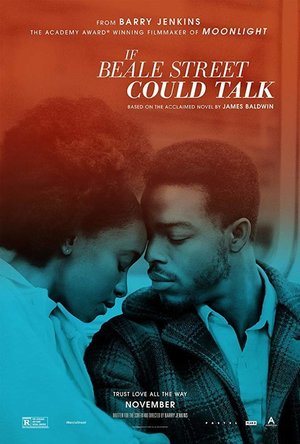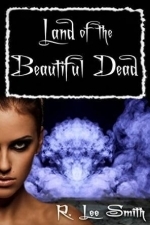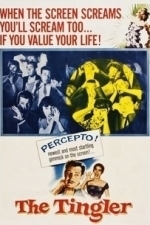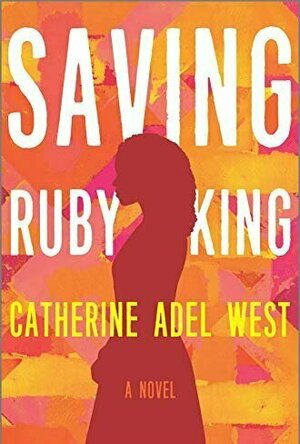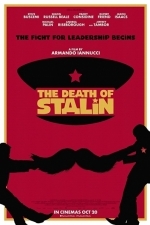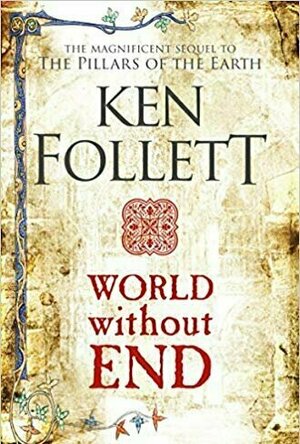Search
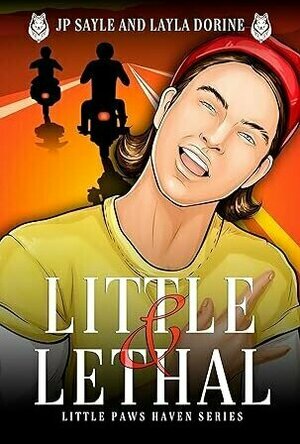
Little & Lethal (Little Paws Haven #2)
JP Sayle and Layla Dorine
Book
Book Two: MMM Paranormal Shifter Romance / Fated Mates / Daddy Kink / MC club / Two Sexy Daddy’s /...
MMM Paranormal Shifter Romance Fated Mates Daddy Kink
Bob Mann (459 KP) rated If Beale Street Could Talk (2018) in Movies
Sep 28, 2021
Love and Rage against the machine.
The baby asked,
‘Is there not one righteous among them?”
― James Baldwin, If Beale Street Could Talk
Beale Street refers to the jumpin’ heart of Memphis where Louis Armstrong was born. As explained in text from Baldwin’s source book (requiring a speed read!) it’s used as a metaphor for the birthplace of every black person in America. (“Every black person in America was born on Beale Street“). But the story is set in Harlem, New York, and with this intellectual stretch, before I even get past the title, I am immediately reaching for the “P-word”, of which more later.
The Plot
Tish (KiKi Layne) is 19 and in love with her lifelong friend ‘Fonny’ (Stephan James). So much in love in fact (and so careless) that Tish is now pregnant with his child. Tish must break this news to both families herself, since Fonny is inside awaiting trial for a vicious rape that he claims he didn’t commit. Tish and their joint families are trying to help, but can Fonny be released in time to see the birth of his child? Or are the institutions so set against him that release is impossible and death row might await?
Interwoven with Love and Anger
At its heart, this film portrays a truly beautiful love story. Tish and Fonny (both adorably played by the young leads) are friends becoming more than friends. We see their emerging love through flashback scenes. Some of these, particularly one on a metro train, are exquisitely done; long gazes into eyes, starting as one thing and ending as another.
In another scene, Fonny takes Tish’s virginity, and it’s done with style, taste and finesse. For younger teens this should be compulsory viewing as an antidote to all the horrible porn they are seeing on the internet: THIS is what sex, based on a foundation of true love, is all about. (The film is UK15 rated for “infrequent very strong language, strong sex” – I actually agree with the rating for the language (and actually I think an act of marital violence should also have also been referenced)…. but not for the sex, which should be 12A).
It’s a love story then? Well, yes, but offset against that, it’s a very angry film, seething with rage about how the police force and the justice system is set ‘against the black man’. Director Barry Jenkins (of – eventual – Oscar winner “Moonlight” fame) has a message to impart and he is intent on imparting it.
A great ensemble performance
The film didn’t get a SAG nomination for the ensemble cast, but it almost feels that they missed out here. As well as the two young leads being spectacular, the whole of the rest of the cast really gel well together, particularly the respective parents: Colman Domingo (“Selma“) as Tish’s father Joseph; Regina King as Tish’s mother Sharon; Michael Beach (“Patriots Day“) as Fonny’s father Frank and Aunjanue Ellis as his bible-bashing mother. A dramatic scene where they all collectively hear the news about the pregnancy is both comical and shocking in equal measure.
Poor sound mixing
If this film gets an Oscar nomination for sound, I’ll frankly be cross! There is significant use of sonorous, bass-heavy music and effects (including a lovely cello theme by Nicholas Britell) – all very effective; there is a lot of earnest and quietly spoken dialogue between the characters – also moody and effective. Unfortunately the two are mixed together in some scenes and frankly I couldn’t make out what was being said. Most frustrating.
In addition, there is voiceover narration from Tish (if you follow my blog regularly you KNOW what I think about that!). Actually, this isn’t as overly intrusive as in films like “The Hate U Give“, but it sounds like it was recorded in a dustbin! It’s a bit like that effect you get with headphones where the plug isn’t quite in the socket, and everything sounds way off and tinny. When combined with Layne’s accent the effect, again, made the dialogue difficult to comprehend.
The c-word and the n-word
There’s a degree of bad language in the film, albeit mild in comparison to “The Favourite“! Tish’s sister (Teyonah Parris) uses the c-word in one very funny dissing of Fonny’s ‘up-themselves’ sisters (Ebony Obsidian and Dominique Thorne). But the n-word is used repeatedly during the film, and that I can never get used to. I ‘get it’ (in the sense that I understand the perception) that this is a word that ‘only black people can use between themselves’. But this just feels elitist and wrong to me. At a time when Viggo Mortensen gets crucified for using it once (while being descriptive and in-context) during a press junket for “Green Book“, I just feel that if a word is taboo it should be taboo, period.
The p-word
My p-word here is “pretentious”. Barry Jenkins clearly feels he has something to prove after the success of “Moonlight“, and there are certainly moments of directorial brilliance in the film. As previously mentioned, the sex scene is one of the best I’ve seen in a long while. Also beautifully done are a birthing scene and two confrontational scenes in Puerto Rico. But there are also moments that seem to be staged, artificial and too ‘arty’ for their own good. Any hidden meaning behind them completely passed me by. (Examples are Sharon’s wig scene and a pan around Fonny’s wood sculpture). It all seems to be “trying too hard”.
Hate for the police is also writ large on the film, with every discriminatory police officer in the whole of the US embodied in the wicked sneering face of the police office Bell (Ed Skrein).
A platform that should be used for more than ranting
This is a film written and directed by an American black man (Jenkins) and largely fully cast with American black people. And I’m a white Englishman commenting on it. I’m clearly unqualified to pass judgement on how black America really feels about things! But comment I will from this fug of ignorance.
It feels to me that the “Black Lives Movement” has given, at long last, black film-makers like Jenkins a platform in cinema to present from. This is a great thing. But I’m sensing that at the moment the tone of the output from that platform (such as this film) seems to me heavily tinged with anger: a scream of frustration about the system and racial injustice over the years. It’s the film-makers right to make films about subjects dear to them. And I’m sure this summer we’ll sadly again see atrocities as previously seen in the likes of Ferguson and Dallas, fuelling the fire of hate. But I would personally really like to see someone like Jenkins use his undoubted talents to make a more uplifting film: a film reflecting the more positive strives that are happening in society, allowing for people of all races and all sexual orientations to make their way in business (not drug-running or crime!) and/or life in general. Those good news stories – the positive side of race relations – are out there and my view is that someone like Barry Jenkins should be telling them.
Final thoughts
I wasn’t as much of a fan of “Moonlight” as the Academy, and this film also left me conflicted. The film is well-made and the cast is very engaging. It also has a love story at its heart that is moody but well-done. Overall though the movie felt over-engineered and a little pretentious, and that knocked it down a few pegs for me.
‘Is there not one righteous among them?”
― James Baldwin, If Beale Street Could Talk
Beale Street refers to the jumpin’ heart of Memphis where Louis Armstrong was born. As explained in text from Baldwin’s source book (requiring a speed read!) it’s used as a metaphor for the birthplace of every black person in America. (“Every black person in America was born on Beale Street“). But the story is set in Harlem, New York, and with this intellectual stretch, before I even get past the title, I am immediately reaching for the “P-word”, of which more later.
The Plot
Tish (KiKi Layne) is 19 and in love with her lifelong friend ‘Fonny’ (Stephan James). So much in love in fact (and so careless) that Tish is now pregnant with his child. Tish must break this news to both families herself, since Fonny is inside awaiting trial for a vicious rape that he claims he didn’t commit. Tish and their joint families are trying to help, but can Fonny be released in time to see the birth of his child? Or are the institutions so set against him that release is impossible and death row might await?
Interwoven with Love and Anger
At its heart, this film portrays a truly beautiful love story. Tish and Fonny (both adorably played by the young leads) are friends becoming more than friends. We see their emerging love through flashback scenes. Some of these, particularly one on a metro train, are exquisitely done; long gazes into eyes, starting as one thing and ending as another.
In another scene, Fonny takes Tish’s virginity, and it’s done with style, taste and finesse. For younger teens this should be compulsory viewing as an antidote to all the horrible porn they are seeing on the internet: THIS is what sex, based on a foundation of true love, is all about. (The film is UK15 rated for “infrequent very strong language, strong sex” – I actually agree with the rating for the language (and actually I think an act of marital violence should also have also been referenced)…. but not for the sex, which should be 12A).
It’s a love story then? Well, yes, but offset against that, it’s a very angry film, seething with rage about how the police force and the justice system is set ‘against the black man’. Director Barry Jenkins (of – eventual – Oscar winner “Moonlight” fame) has a message to impart and he is intent on imparting it.
A great ensemble performance
The film didn’t get a SAG nomination for the ensemble cast, but it almost feels that they missed out here. As well as the two young leads being spectacular, the whole of the rest of the cast really gel well together, particularly the respective parents: Colman Domingo (“Selma“) as Tish’s father Joseph; Regina King as Tish’s mother Sharon; Michael Beach (“Patriots Day“) as Fonny’s father Frank and Aunjanue Ellis as his bible-bashing mother. A dramatic scene where they all collectively hear the news about the pregnancy is both comical and shocking in equal measure.
Poor sound mixing
If this film gets an Oscar nomination for sound, I’ll frankly be cross! There is significant use of sonorous, bass-heavy music and effects (including a lovely cello theme by Nicholas Britell) – all very effective; there is a lot of earnest and quietly spoken dialogue between the characters – also moody and effective. Unfortunately the two are mixed together in some scenes and frankly I couldn’t make out what was being said. Most frustrating.
In addition, there is voiceover narration from Tish (if you follow my blog regularly you KNOW what I think about that!). Actually, this isn’t as overly intrusive as in films like “The Hate U Give“, but it sounds like it was recorded in a dustbin! It’s a bit like that effect you get with headphones where the plug isn’t quite in the socket, and everything sounds way off and tinny. When combined with Layne’s accent the effect, again, made the dialogue difficult to comprehend.
The c-word and the n-word
There’s a degree of bad language in the film, albeit mild in comparison to “The Favourite“! Tish’s sister (Teyonah Parris) uses the c-word in one very funny dissing of Fonny’s ‘up-themselves’ sisters (Ebony Obsidian and Dominique Thorne). But the n-word is used repeatedly during the film, and that I can never get used to. I ‘get it’ (in the sense that I understand the perception) that this is a word that ‘only black people can use between themselves’. But this just feels elitist and wrong to me. At a time when Viggo Mortensen gets crucified for using it once (while being descriptive and in-context) during a press junket for “Green Book“, I just feel that if a word is taboo it should be taboo, period.
The p-word
My p-word here is “pretentious”. Barry Jenkins clearly feels he has something to prove after the success of “Moonlight“, and there are certainly moments of directorial brilliance in the film. As previously mentioned, the sex scene is one of the best I’ve seen in a long while. Also beautifully done are a birthing scene and two confrontational scenes in Puerto Rico. But there are also moments that seem to be staged, artificial and too ‘arty’ for their own good. Any hidden meaning behind them completely passed me by. (Examples are Sharon’s wig scene and a pan around Fonny’s wood sculpture). It all seems to be “trying too hard”.
Hate for the police is also writ large on the film, with every discriminatory police officer in the whole of the US embodied in the wicked sneering face of the police office Bell (Ed Skrein).
A platform that should be used for more than ranting
This is a film written and directed by an American black man (Jenkins) and largely fully cast with American black people. And I’m a white Englishman commenting on it. I’m clearly unqualified to pass judgement on how black America really feels about things! But comment I will from this fug of ignorance.
It feels to me that the “Black Lives Movement” has given, at long last, black film-makers like Jenkins a platform in cinema to present from. This is a great thing. But I’m sensing that at the moment the tone of the output from that platform (such as this film) seems to me heavily tinged with anger: a scream of frustration about the system and racial injustice over the years. It’s the film-makers right to make films about subjects dear to them. And I’m sure this summer we’ll sadly again see atrocities as previously seen in the likes of Ferguson and Dallas, fuelling the fire of hate. But I would personally really like to see someone like Jenkins use his undoubted talents to make a more uplifting film: a film reflecting the more positive strives that are happening in society, allowing for people of all races and all sexual orientations to make their way in business (not drug-running or crime!) and/or life in general. Those good news stories – the positive side of race relations – are out there and my view is that someone like Barry Jenkins should be telling them.
Final thoughts
I wasn’t as much of a fan of “Moonlight” as the Academy, and this film also left me conflicted. The film is well-made and the cast is very engaging. It also has a love story at its heart that is moody but well-done. Overall though the movie felt over-engineered and a little pretentious, and that knocked it down a few pegs for me.
Beckie Shelton (40 KP) rated The Land of the Beautiful Dead in Books
May 24, 2017
The Land of the beautiful dead If you like alternative dystopian fiction then give this a go it's an amazing read.
SHE WOULD DARE ANYTHING TO SAVE THE WORLD FROM HIS RULE.
EVEN HIS BED.
He ascended from the darkness years ago—Azrael the Eternal, Azrael the Undying, Azrael Who Is Death—bringing with him the black rains, the fires, the souring of the sky, and the Eaters. Now he rules in the walled city of Haven with his favoured Children and his dead court, while all that is left of the living struggles to survive in the ruins of a world that used to be their own. But even as extinction looms, humanity will never surrender to their monstrous conqueror.
For Lan, this brutal life has been the only one she’s ever known, but she still believes it can change. If the war can never truly end until the Eaters are ended, she will go to Haven, to Azrael himself, and demand he end them. To her surprise, she does not immediately die the hero’s death she expected. Instead, Azrael offers her a chance to convince him, and all she has to do is submit herself to the chill embrace of the lord of the Land of the Beautiful Dead.
From the author of The Scholomance and The Last Hour of Gann comes a new vision of erotic horror! This book contains explicit sex and gore and is intended for mature readers only.
I cannot say enough good things about this book, Land of the beautiful dead is a story I have lived and breathed over the last week,I have laughed and cried and become so emotionally attached to these two flawed characters Lan and Azrael ,I love R L Smith and did not think anything could surpass The Last Hour Of Gann for me but this did. My only criticism is it had to end, this book is one story I am unlikely to forget as it's so unique, I can honestly say I don't think I've ever read anything like this before.
If you like alternative dystopian fiction then give this a go it's an amazing read.
Reviewed By Beckie Bookworm
https://www.beckiebookworm.com/
https://www.facebook.com/beckiebookworm/
https://www.goodreads.com/user/show/9460945-bex-beckie-bookworm
EVEN HIS BED.
He ascended from the darkness years ago—Azrael the Eternal, Azrael the Undying, Azrael Who Is Death—bringing with him the black rains, the fires, the souring of the sky, and the Eaters. Now he rules in the walled city of Haven with his favoured Children and his dead court, while all that is left of the living struggles to survive in the ruins of a world that used to be their own. But even as extinction looms, humanity will never surrender to their monstrous conqueror.
For Lan, this brutal life has been the only one she’s ever known, but she still believes it can change. If the war can never truly end until the Eaters are ended, she will go to Haven, to Azrael himself, and demand he end them. To her surprise, she does not immediately die the hero’s death she expected. Instead, Azrael offers her a chance to convince him, and all she has to do is submit herself to the chill embrace of the lord of the Land of the Beautiful Dead.
From the author of The Scholomance and The Last Hour of Gann comes a new vision of erotic horror! This book contains explicit sex and gore and is intended for mature readers only.
I cannot say enough good things about this book, Land of the beautiful dead is a story I have lived and breathed over the last week,I have laughed and cried and become so emotionally attached to these two flawed characters Lan and Azrael ,I love R L Smith and did not think anything could surpass The Last Hour Of Gann for me but this did. My only criticism is it had to end, this book is one story I am unlikely to forget as it's so unique, I can honestly say I don't think I've ever read anything like this before.
If you like alternative dystopian fiction then give this a go it's an amazing read.
Reviewed By Beckie Bookworm
https://www.beckiebookworm.com/
https://www.facebook.com/beckiebookworm/
https://www.goodreads.com/user/show/9460945-bex-beckie-bookworm
Matthew Krueger (10051 KP) rated The Tingler (1959) in Movies
Dec 5, 2020
Vincent Price (1 more)
William Castle
When You Scream
The Tingler- is a excellent movie and if you havent watched it than go watch it.
The plot: Dr. Warren Chapin (Vincent Price) has made a surprising discovery -- the spine-chilling sensation that people get when scared is due to a parasite that he dubs the "tingler." Chapin concludes that in extreme circumstances, prolonged fear can cause the creature to damage a person's spine and even cause death if the victim can't scream, a theory that Oliver Higgins (Philip Coolidge) uses to deadly effect on his wife (Judith Evelyn). Soon the tingler that killed the woman is on the loose.
Castle used gimmicks to sell the film. The Tingler remains most well known for a gimmick called "Percepto!", a vibrating device in some theater chairs which activated with the onscreen action.
In a similar manner as Universal's Frankenstein (1931), Castle opened the film with an on-screen warning to the audience:
"I am William Castle, the director of the motion picture you are about to see. I feel obligated to warn you that some of the sensations—some of the physical reactions which the actors on the screen will feel—will also be experienced, for the first time in motion picture history, by certain members of this audience. I say 'certain members' because some people are more sensitive to these mysterious electronic impulses than others. These unfortunate, sensitive people will at times feel a strange, tingling sensation; other people will feel it less strongly. But don't be alarmed—you can protect yourself. At any time you are conscious of a tingling sensation, you may obtain immediate relief by screaming. Don't be embarrassed about opening your mouth and letting rip with all you've got, because the person in the seat right next to you will probably be screaming too. And remember—a scream at the right time may save your life."
William Castle was famous for his movie gimmicks, and The Tingler featured one of his best: "Percepto!". Previously, he had offered a $1,000 life insurance policy against "Death by Fright" for Macabre (1958) and sent a skeleton flying above the audiences' heads in the auditorium in House on Haunted Hill (1959).
"Percepto!" was a gimmick where Castle attached electrical "buzzers" to the underside of some seats in theaters where The Tingler was screened. The buzzers were small surplus airplane wing deicing motors left from World War II. The cost of this equipment added $250,000 to the film's budget. It was used predominantly in larger theaters.
During the climax of the film, The Tingler was unleashed in the movie theater, while the audience watched Tol'able David (1921), in which a young woman escapes the unwanted advances of her boyfriend and is targeted. In the real-life theater, a woman screamed and then pretended to faint; she was then taken away in a stretcher, all part of the show arranged by Castle. From the screen, the voice of Price mentioned the fainted lady and asked the rest of the audience to remain seated. The film-within-a-film resumed and was interrupted again. The projected film appeared to break as the silhouette of the tingler moved across the projection beam. The image of the film went dark, all lights in the auditorium (except fire exit signs) went off, and Price's voice warned the audience, "Ladies and gentlemen, please do not panic. But scream! Scream for your lives! The tingler is loose in this theater!" This cued the theater projectionist to activate the Percepto! buzzers, giving some audience members an unexpected jolt, followed by a highly visible physical reaction. The voices of scared patrons were heard from the screen, replaced by the voice of Price, who explained that the tingler was paralyzed and the danger was over. At this point, the film resumed its normal format, which was used for its epilogue
An alternate warning was recorded for drive-in theaters; this warning advised the audience the tingler was loose in the drive-in. Castle's voice was substituted for Price's in this version.
Castle's autobiography, Step Right Up!: I'm Gonna Scare the Pants off America, erroneously stated that "Percepto!" delivered electric shocks to the theater seats.
To enhance the climax even more, Castle hired fake "screamers and fainters" planted in the audience There were fake nurses stationed in the foyer and an ambulance outside of the theater. The "fainters" would be carried out on a gurney and whisked away in the ambulance, to return for the next showing.
Although The Tingler was filmed in black-and-white, a short color sequence was spliced into the film. It showed a sink (in black-and-white) with bright-red "blood" flowing from the taps and a black-and-white Evelyn watching a bloody red hand rising from a bathtub, likewise filled with the bright red "blood". Castle used color film for the effect. The scene was accomplished by painting the set white, black and gray and applying gray makeup to the actress to simulate monochrome.
Excellent Film.
The plot: Dr. Warren Chapin (Vincent Price) has made a surprising discovery -- the spine-chilling sensation that people get when scared is due to a parasite that he dubs the "tingler." Chapin concludes that in extreme circumstances, prolonged fear can cause the creature to damage a person's spine and even cause death if the victim can't scream, a theory that Oliver Higgins (Philip Coolidge) uses to deadly effect on his wife (Judith Evelyn). Soon the tingler that killed the woman is on the loose.
Castle used gimmicks to sell the film. The Tingler remains most well known for a gimmick called "Percepto!", a vibrating device in some theater chairs which activated with the onscreen action.
In a similar manner as Universal's Frankenstein (1931), Castle opened the film with an on-screen warning to the audience:
"I am William Castle, the director of the motion picture you are about to see. I feel obligated to warn you that some of the sensations—some of the physical reactions which the actors on the screen will feel—will also be experienced, for the first time in motion picture history, by certain members of this audience. I say 'certain members' because some people are more sensitive to these mysterious electronic impulses than others. These unfortunate, sensitive people will at times feel a strange, tingling sensation; other people will feel it less strongly. But don't be alarmed—you can protect yourself. At any time you are conscious of a tingling sensation, you may obtain immediate relief by screaming. Don't be embarrassed about opening your mouth and letting rip with all you've got, because the person in the seat right next to you will probably be screaming too. And remember—a scream at the right time may save your life."
William Castle was famous for his movie gimmicks, and The Tingler featured one of his best: "Percepto!". Previously, he had offered a $1,000 life insurance policy against "Death by Fright" for Macabre (1958) and sent a skeleton flying above the audiences' heads in the auditorium in House on Haunted Hill (1959).
"Percepto!" was a gimmick where Castle attached electrical "buzzers" to the underside of some seats in theaters where The Tingler was screened. The buzzers were small surplus airplane wing deicing motors left from World War II. The cost of this equipment added $250,000 to the film's budget. It was used predominantly in larger theaters.
During the climax of the film, The Tingler was unleashed in the movie theater, while the audience watched Tol'able David (1921), in which a young woman escapes the unwanted advances of her boyfriend and is targeted. In the real-life theater, a woman screamed and then pretended to faint; she was then taken away in a stretcher, all part of the show arranged by Castle. From the screen, the voice of Price mentioned the fainted lady and asked the rest of the audience to remain seated. The film-within-a-film resumed and was interrupted again. The projected film appeared to break as the silhouette of the tingler moved across the projection beam. The image of the film went dark, all lights in the auditorium (except fire exit signs) went off, and Price's voice warned the audience, "Ladies and gentlemen, please do not panic. But scream! Scream for your lives! The tingler is loose in this theater!" This cued the theater projectionist to activate the Percepto! buzzers, giving some audience members an unexpected jolt, followed by a highly visible physical reaction. The voices of scared patrons were heard from the screen, replaced by the voice of Price, who explained that the tingler was paralyzed and the danger was over. At this point, the film resumed its normal format, which was used for its epilogue
An alternate warning was recorded for drive-in theaters; this warning advised the audience the tingler was loose in the drive-in. Castle's voice was substituted for Price's in this version.
Castle's autobiography, Step Right Up!: I'm Gonna Scare the Pants off America, erroneously stated that "Percepto!" delivered electric shocks to the theater seats.
To enhance the climax even more, Castle hired fake "screamers and fainters" planted in the audience There were fake nurses stationed in the foyer and an ambulance outside of the theater. The "fainters" would be carried out on a gurney and whisked away in the ambulance, to return for the next showing.
Although The Tingler was filmed in black-and-white, a short color sequence was spliced into the film. It showed a sink (in black-and-white) with bright-red "blood" flowing from the taps and a black-and-white Evelyn watching a bloody red hand rising from a bathtub, likewise filled with the bright red "blood". Castle used color film for the effect. The scene was accomplished by painting the set white, black and gray and applying gray makeup to the actress to simulate monochrome.
Excellent Film.
Kristy H (1252 KP) rated Saving Ruby King in Books
Jun 18, 2020
Ruby King is twenty-four-years-old when her mother, Alice, is found murdered in the home she shared with Ruby and Ruby's father, Lebanon. The police show little interest in--to them--another death in the King's black neighborhood, but Alice's death unhinges Ruby and leaves her alone with her violent, abusive father. Her only confidante is her best friend, Layla, who knows how long Alice and Ruby have suffered under Lebanon's wrath. But Layla is angry that Ruby won't do more to get away from Lebanon and she's even angrier at her father, a pastor, who has been close to Lebanon all these years, and yet never did anything to free Alice or Ruby from his abuse. Layla is determined to save Ruby, but as she works to rescue her friend, she starts to uncover a world of secrets and lies flowing back generations.
"I'm stitched together by the lies I tell myself and the lies people want to believe about me." ~Alice
I found this excellent and timely book to be incredibly well-written, with a power and tenderness to it that goes far behind your typical debut novel (I had to double check that this was actually West's first novel, I was so impressed).
West tells her story from a variety of points of view--Ruby; her late mother, Alice; her father, Lebanon; her best friend, Layla; Layla's father, a pastor; and more. We even hear from a central figure in all of these characters' lives--their church, via its omnipresent voice. The plot spans generations, with West giving a nuanced look at each of her complex characters. She does an amazing job of showing the power of family, for both good and bad. How choices can affect generations: one person's bad decisions can pass poison on, with children reliving dysfunction and sins.
"How can there be a me without her?" ~Ruby
No one is simply good or bad here, though Lebanon is not an easy-to-like man. Abused and neglected by his own parent, Sara, we see how Sara's neglect has turned Lebanon hard. But West is such a good writer that Lebanon is not a one-dimensional bad guy, as much as you want to hate him. I was incredibly impressed at how she could create sympathy for so many of her players, even when they did despicable things.
"Without Sara, who do I blame for...being me? Are children supposed to forgive their parents for the horrible things they've done?" ~Lebanon
This novel does an impressive job at delving into racism, domestic abuse, and sexual assault and trauma. The city of Chicago appears as its own character, springing to life via West's lovely prose. She expertly shows the difficulties black people face on the south side (and in general). I read this book during George Floyd's murder and found myself highlighting passages about police brutality that just hit me right in the gut. It's very powerful.
West's book features a variety of characters--they can be hard to keep track of at first, and I was glad to have the family tree in the beginning of the book. A few times the plot felt repetitious and the middle dragged a bit, but it picked up in the second half. There's a surprising amount of twists and turns. Overall, this is a realistic look at racism and domestic violence, but also friendship. It's quite well-written and layered with a twinge of hope throughout. I can't wait to see what West writes next. 4+ stars.
"I'm stitched together by the lies I tell myself and the lies people want to believe about me." ~Alice
I found this excellent and timely book to be incredibly well-written, with a power and tenderness to it that goes far behind your typical debut novel (I had to double check that this was actually West's first novel, I was so impressed).
West tells her story from a variety of points of view--Ruby; her late mother, Alice; her father, Lebanon; her best friend, Layla; Layla's father, a pastor; and more. We even hear from a central figure in all of these characters' lives--their church, via its omnipresent voice. The plot spans generations, with West giving a nuanced look at each of her complex characters. She does an amazing job of showing the power of family, for both good and bad. How choices can affect generations: one person's bad decisions can pass poison on, with children reliving dysfunction and sins.
"How can there be a me without her?" ~Ruby
No one is simply good or bad here, though Lebanon is not an easy-to-like man. Abused and neglected by his own parent, Sara, we see how Sara's neglect has turned Lebanon hard. But West is such a good writer that Lebanon is not a one-dimensional bad guy, as much as you want to hate him. I was incredibly impressed at how she could create sympathy for so many of her players, even when they did despicable things.
"Without Sara, who do I blame for...being me? Are children supposed to forgive their parents for the horrible things they've done?" ~Lebanon
This novel does an impressive job at delving into racism, domestic abuse, and sexual assault and trauma. The city of Chicago appears as its own character, springing to life via West's lovely prose. She expertly shows the difficulties black people face on the south side (and in general). I read this book during George Floyd's murder and found myself highlighting passages about police brutality that just hit me right in the gut. It's very powerful.
West's book features a variety of characters--they can be hard to keep track of at first, and I was glad to have the family tree in the beginning of the book. A few times the plot felt repetitious and the middle dragged a bit, but it picked up in the second half. There's a surprising amount of twists and turns. Overall, this is a realistic look at racism and domestic violence, but also friendship. It's quite well-written and layered with a twinge of hope throughout. I can't wait to see what West writes next. 4+ stars.
Bob Mann (459 KP) rated The Death Of Stalin (2017) in Movies
Sep 29, 2021
Death…. Torture…. Child Abuse…. LOL??
Armando Iannucci is most familiar to TV audiences on both sides of the pond for his cutting political satire of the likes of “Veep” and “The Thick of It”, with his only previous foray into directing movies being “In the Loop”: a spin-off of the latter series. Lovers of his work will know that he sails very close to the wind on many occasions, such that watching can be more of a squirm-fest than enjoyment.
Rupert Friend (centre) tries to deliver a eulogy to his father against winged opposition. With (from left to right) Michael Palin, Jeffrey Tambor, Steve Buscemi and Simon Russell Beale.
It should come as no surprise then that his new film – “The Death of Stalin” – follows that same pattern, but transposed into the anarchic and violent world of 1950’s Russia. Based on a French comic strip, the film tells the farcical goings on surrounding the last days of the great dictator in 1953. Stalin keeps distributing his “lists” of undesirables, most of who will meet unpleasant ends before the end of the night. But as Stalin suddenly shuffles off his mortal coil, the race is on among his fellow commissariat members as to who will ultimately succeed him.
Stalin…. Going… but not forgotten.
The constitution dictates that Georgy Malenkov (an excellently vacillating Jeffrey Tambor) secedes but, as a weak man, the job is clearly soon going to become vacant again and spy-chief Lavrentiy Beria (Simon Russell Beale) and Nikita Khrushchev (Steve Buscemi) are jostling for position. (No spoilers, but you’ll never guess who wins!). Colleagues including Molotov (Michael Palin) and Mikoyan (Paul Whitehouse) need to decide who to side with as the machinations around Stalin’s funeral become more and more desperate.
The film starts extremely strongly with the ever-excellent Paddy Considine (“Pride”) playing a Radio Russia producer tasked with recording a classical concert, featuring piano virtuoso Maria Yudina (Olga Kurylenko, “Quantum of Solace”). A definition of paranoia in action!
Great fingering. Olga Kurylenko as Yudina, with more than a hand in the way the evening’s events will unfold.
We then descend into the chaos of Stalin’s Russia, with mass torture and execution colouring the comedy from dark-grey to charcoal-black in turns. There is definitely comedy gold in there: Khrushchev’s translation of his drunken scribblings from the night before (of things that Stalin found funny and – more importantly – things he didn’t) being a high point for me. Stalin’s children Svetlana (Andrea Riseborough, “Nocturnal Animals”) and Vasily (Rupert Friend, “Homeland”) add knockabout humour to offset the darker elements, and army chief Georgy Zhukov (Jason Isaacs, “Harry Potter”) is a riot with a no-nonsense North-of-England accent.
Brass Eye: Jason Isaacs as the army chief from somewhere just north of Wigan.
Production values are universally excellent, with great locations, great sets and a screen populated with enough extras to make the crowd scenes all appear realistic.
Another broad Yorkshire accent: (the almost unknown) Adrian McLoughlin delivers an hysterical speaking voice as Stalin.
The film absolutely held my interest and was thorougly entertaining, but the comedy is just so dark in places it leaves you on edge throughout. The writing is also patchy at times, with some of the lines falling to the ground as heavily as the dispatched Gulag residents.
It’s not going to be for everyone, with significant violence and gruesome scenes, but go along with the black comic theme and this is a film that delivers rewards.
Rupert Friend (centre) tries to deliver a eulogy to his father against winged opposition. With (from left to right) Michael Palin, Jeffrey Tambor, Steve Buscemi and Simon Russell Beale.
It should come as no surprise then that his new film – “The Death of Stalin” – follows that same pattern, but transposed into the anarchic and violent world of 1950’s Russia. Based on a French comic strip, the film tells the farcical goings on surrounding the last days of the great dictator in 1953. Stalin keeps distributing his “lists” of undesirables, most of who will meet unpleasant ends before the end of the night. But as Stalin suddenly shuffles off his mortal coil, the race is on among his fellow commissariat members as to who will ultimately succeed him.
Stalin…. Going… but not forgotten.
The constitution dictates that Georgy Malenkov (an excellently vacillating Jeffrey Tambor) secedes but, as a weak man, the job is clearly soon going to become vacant again and spy-chief Lavrentiy Beria (Simon Russell Beale) and Nikita Khrushchev (Steve Buscemi) are jostling for position. (No spoilers, but you’ll never guess who wins!). Colleagues including Molotov (Michael Palin) and Mikoyan (Paul Whitehouse) need to decide who to side with as the machinations around Stalin’s funeral become more and more desperate.
The film starts extremely strongly with the ever-excellent Paddy Considine (“Pride”) playing a Radio Russia producer tasked with recording a classical concert, featuring piano virtuoso Maria Yudina (Olga Kurylenko, “Quantum of Solace”). A definition of paranoia in action!
Great fingering. Olga Kurylenko as Yudina, with more than a hand in the way the evening’s events will unfold.
We then descend into the chaos of Stalin’s Russia, with mass torture and execution colouring the comedy from dark-grey to charcoal-black in turns. There is definitely comedy gold in there: Khrushchev’s translation of his drunken scribblings from the night before (of things that Stalin found funny and – more importantly – things he didn’t) being a high point for me. Stalin’s children Svetlana (Andrea Riseborough, “Nocturnal Animals”) and Vasily (Rupert Friend, “Homeland”) add knockabout humour to offset the darker elements, and army chief Georgy Zhukov (Jason Isaacs, “Harry Potter”) is a riot with a no-nonsense North-of-England accent.
Brass Eye: Jason Isaacs as the army chief from somewhere just north of Wigan.
Production values are universally excellent, with great locations, great sets and a screen populated with enough extras to make the crowd scenes all appear realistic.
Another broad Yorkshire accent: (the almost unknown) Adrian McLoughlin delivers an hysterical speaking voice as Stalin.
The film absolutely held my interest and was thorougly entertaining, but the comedy is just so dark in places it leaves you on edge throughout. The writing is also patchy at times, with some of the lines falling to the ground as heavily as the dispatched Gulag residents.
It’s not going to be for everyone, with significant violence and gruesome scenes, but go along with the black comic theme and this is a film that delivers rewards.
Characters you care about (1 more)
An interesting, well thought out plot
A creepy thriller, well worth the watch!
23 years ago Carys Howell goes missing from a small Welsh village. The case is never solved. After the sudden and horrific death of her mother, Matilda Gray, celebrity cello player, finds herself drawn to the village and the case. Followed by close friend Hal, who has clear but unreciprocated feelings towards Matilda, she slowly begins to unravel the events around the case. What Matilda finds leads her into the world of the dark supernatural.
I found the story engaging and compelling and I really cared about the main characters- particularly Matilda and Hal. The supernatural scenes were creepy and a little jumpy at times.
There were a few issues that I had with the series, firstly some of the twists were a little predictable , but this is offset by the twists that were unexpected. My primary gripe with the series is that the ending left me wanting- it was missing that fulfilling ending that I was craving. I would have preferred an additional episode that covered the ‘black outs’, instead it was almost as if the writers had put so much into the rest of the series, that they got to the last thirty minutes and rushed it, missing out the meat.
The series does set itself up nicely for a season 2, but neither the BBC or Netflix have confirmed a renewal (both have a stake in the series). Despite the weak ending, I do hope that there is a sequel, as I believe it will be much darker and creepier.
I found the story engaging and compelling and I really cared about the main characters- particularly Matilda and Hal. The supernatural scenes were creepy and a little jumpy at times.
There were a few issues that I had with the series, firstly some of the twists were a little predictable , but this is offset by the twists that were unexpected. My primary gripe with the series is that the ending left me wanting- it was missing that fulfilling ending that I was craving. I would have preferred an additional episode that covered the ‘black outs’, instead it was almost as if the writers had put so much into the rest of the series, that they got to the last thirty minutes and rushed it, missing out the meat.
The series does set itself up nicely for a season 2, but neither the BBC or Netflix have confirmed a renewal (both have a stake in the series). Despite the weak ending, I do hope that there is a sequel, as I believe it will be much darker and creepier.
Lyndsey Gollogly (2893 KP) rated World Without End in Books
Feb 4, 2020
Contains spoilers, click to show
World Without End takes place in the same town of Kingsbridge, two centuries after the townspeople finished building the exquisite Gothic cathedral that was at the heart of The Pillars of the Earth. The cathedral and the priory are again at the center of a web of love and hate, greed and pride, ambition and revenge, but this sequel stands on its own. This time the men and women of an extraordinary cast of characters find themselves at a crossroads of new ideas—about medicine, commerce, architecture, and justice. In a world where proponents of the old ways fiercely battle those with progressive minds, the intrigue and tension quickly reach a boiling point against the devastating backdrop of the greatest natural disaster ever to strike the human race—the Black Death.
Back to Kingsbridge., Following the lives of the children from pillars of the earth. I loved this book so much even more than the first! Ken Follett has a way of dragging you into this world and just making you believe it's now and you seeing it all unfold. Caris is inspirational watching her fight her way through to be exactly who he wants be and letting noone stand in her way despite what they try and do! Gwenda has fought for absolutely everything in her life, her man , her work her children. Ralph is just absolutely vile never have I read about a character I despise more! Well philmore comes bloody close. So many lives to follow and lose yourself in. Highly recommended these books are just brilliant!!
Kingsbridge survives the plague so what's next??
The cathedral is still the centre of it all
Back to Kingsbridge., Following the lives of the children from pillars of the earth. I loved this book so much even more than the first! Ken Follett has a way of dragging you into this world and just making you believe it's now and you seeing it all unfold. Caris is inspirational watching her fight her way through to be exactly who he wants be and letting noone stand in her way despite what they try and do! Gwenda has fought for absolutely everything in her life, her man , her work her children. Ralph is just absolutely vile never have I read about a character I despise more! Well philmore comes bloody close. So many lives to follow and lose yourself in. Highly recommended these books are just brilliant!!
Kingsbridge survives the plague so what's next??
The cathedral is still the centre of it all
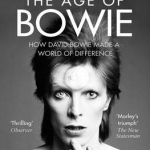
The Age of Bowie: How David Bowie Made a World of Difference
Book
THE SUNDAY TIMES BESTSELLER 'A handsome six footer with a warm and engaging personality, Davie Jones...
AH
Alfred Hitchcock: Interviews
Book
Even twenty years after his death and nearly fifty or more years after his creative peak, Alfred...
